Graham Reid | | 9 min read
Mareko: City Line
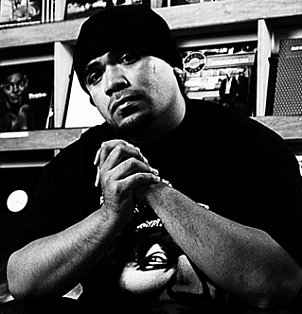
Mareko is seated at one end of a stacked table in Dawnraid's South Auckland office. Piled high on the other end are boxes of T-shirts emblazoned with his name and that of his debut album, White Sunday.
During a wide-ranging conversation, Mareko - aka Mark Sagapolutele - laughs about how much mileage he's been getting in the media lately. And his album isn't even out yet.
He's had photo-shoots, interviews, got a video on the small screen, and been featured in magazines. Halfway through our chat, Andy Murnane, CEO of Dawnraid Entertainment (his music company which also has a clothing range and hairdresser down the road), drops a huge poster in front of him.
It's a blow-up of his face staring out of the cover of another monthly music magazine.
The reason for the attention is Mareko spent a month in New York and through the assistance of expat-Kiwi Kirk Harding - now at the rap consultancy agency Know the Ledge - was hooked up with Inspectah Deck from Wu-Tang Clan, Scram Jones and Roc Raida from X-Ecutioners, the legendary Beatnuts and others out of New York's celebrated rap scene.
With additional material recorded here with P-Money, White Sunday is a quantum leap ahead in local hip-hop and already the early verdicts are glowing.
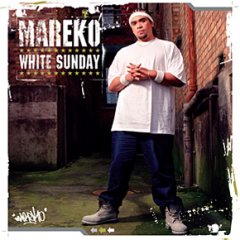 The consensus is that this is our most
ambitious, assured and artistically successful hip-hop album yet.
The consensus is that this is our most
ambitious, assured and artistically successful hip-hop album yet.
Mareko's rhymes crackle with wit or anger, and while White Sunday may bristle with the feel of New York's meaner streets when the guests drop by, elsewhere he pays tribute to his family and his upbringing. My Lady is a soulful acknowledgment of the important women in his life, Big Dummy is a hilarious name-dropping rhyme which includes Bic Runga, Uncle Bully, the Mad Butcher and says, "I wanna see who'd win in a fight between George Speight and Rambuka".
He delivers an engagingly amusing but poignant account of a bus ride from South Auckland to Newmarket on City Line. He also announces himself in the catchy, pop-structured Mareko (Here to Stay) which is the first local single.
"I spent a day with Kirk and he said, 'Look at Eminem, Dr Dre and Xzibit. Why are they so successful?' Because their first single always mentions their name. So a lot of what I did was heavily influenced by Kirk. And you know, it works because I see a lot of little boys and girls coming up and going, 'Mareko'. People know Deceptikonz but they don't know Mareko so we have to make sure that happens."
Not the least because of Dawnraid's six-figure investment in him. He feels the weight of that responsibility and says that's why T-shirts announcing White Sunday have been around for months, the posters and stickers are turning up everywhere, and there are all these magazines and interviews.
Mareko, one quarter of the rap outfit
Deceptikonz, is on his way as a solo star and has a story to tell. A
lot of people are listening.
"The last two weeks have been full
on," he grins unselfconsciously. "But it's okay, this is
what I wanted to become. For every kid it's their dream to become a
rap star. So I guess I'm living the dream."
At 22, the youngest of four brothers and with a little sister, Mareko is a New Zealand-born Samoan - and lives with all that it means.
"My dad passed away in '98 and he had the Samoan mind-state where you do well in school, go to work and succeed and provide a good living for your kids. His family, his uncles and aunties, was brought here to study, some of his uncles and aunties are teachers at BYU [Brigham Young University] and the whole family has instilled in their mindset that education is the key.
"I don't know if it's fate, but honestly if he was alive I don't think I'd be doing this because education was the thing. If you see your son performing these songs and swearing every second line ... He saw it and didn't approve of it, but my career wasn't really taking off then."
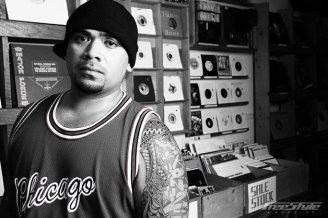 But he's in no doubt what his dad would
be thinking if he could see him now: a member of New Zealand's
premier rap crew and producer of Dawnraid's biggest-selling album so
far with their Elimination, finalist for the Apra Silver Scroll
songwriters award, the country's best battle MC, and now with an
album partially recorded in New York with some of the biggest names
in Stateside rap.
But he's in no doubt what his dad would
be thinking if he could see him now: a member of New Zealand's
premier rap crew and producer of Dawnraid's biggest-selling album so
far with their Elimination, finalist for the Apra Silver Scroll
songwriters award, the country's best battle MC, and now with an
album partially recorded in New York with some of the biggest names
in Stateside rap.
So your dad would be ... proud, right?
"Oh totally. The Samoan culture is they really pride themselves when their people succeed. It's a hard road being a Samoan, man. Especially in a family like that. On the come-up it's, 'Why are you doing this?' But when you succeed it's, 'Everybody - this is my son'. Suddenly you've got a million cousins. It's a beautiful thing though."
His mum rings regularly to find out when he's next going to be on television and he says his family support him 120 per cent and Deceptikonz - who feature on his album's closing track, Stop Drop and Roll - are right behind him.
"They know this a Deceptikonz album and that we are a tight unit. Anything I do I am representing them. I'm trying to open a door and build a bridge for my brothers to walk over."
If he's living the dream it's one he wants to share: "I really want to take Deceptikonz over. Andy and I saw a show with Common and Mos Def, and if we took our show over there we'd blow their minds out. Those acts are at a point where they rely on their status and get the crowd going, but the showmanship factor has worn off. Deceptikonz pride ourselves on our show. People have lost the hunger or desire and just walk out and recite their lines, they don't take the time or effort to put on a show."
Mareko is in no doubt that if he was motivated in Deceptikonz he has to up his game even more now. A lot are looking at him as our international rap emissary.
 He lived in Harlem for a month, worked
in the same studio in Queens as KRS-1 and with a producer whose
credits go back to Salt N Pepa and Kid N Play, signed to the HRH
label in New York (labelmates are Beatnuts, Big Daddy Kane and Non
Fiction), and soaked up the vibe. Getting there meant his first
international flight and, although nervous, he loved it. He was
living his dream.
He lived in Harlem for a month, worked
in the same studio in Queens as KRS-1 and with a producer whose
credits go back to Salt N Pepa and Kid N Play, signed to the HRH
label in New York (labelmates are Beatnuts, Big Daddy Kane and Non
Fiction), and soaked up the vibe. Getting there meant his first
international flight and, although nervous, he loved it. He was
living his dream.
"I'd prepared myself mentally but when I got off the plane and heard that first American woman talk I thought, 'Man, this ain't New Zealand anymore.' I thought I'd jumped through a movie screen. Even after three weeks I still couldn't believe it. It was surreal.
This was a country I'd grown up on. I'd been force-fed their movies and television and and culture, and all of a sudden I'm jumping through that screen."
Growing up in South Auckland, the young Mareko was attracted to rap and especially how words could work. He'd practise rhymes, try to find the polysyllables which would impress and in the fourth form was one of the bunch who formed Deceptikonz. Their Elimination album of 2001 tossed them to the forefront of local rap, and last year they were the most in-demand crew in the country.
"There was a period when an album wouldn't come out if it didn't have Deceptikonz on it. It was crazy, from P-Money to Unique to Dubious Brothers to Major Flavas. But we know what it's about. It's only natural for a crew to be in the What's Hot then What's Not categories, but it's a test for us to stay on top of our game. It gives us the motivation to work extra hard."
His battle skills - a traditional form of rapping given prominence again in Eminem's movie 8 Mile - set him apart and today he's widely regarded as the best we've got. Dawnraid felt he was the one they should make the big commitment to and take to the US. But a lot is riding on his broad shoulders.
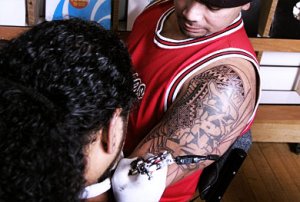 Mareko is an impressive character. Tall
and powerfully built, he speaks with a gentle voice, is genuinely
appreciative of the support and help he's had from all quarters, and
sees any success he might have as being good for everyone. He may
brag off on stage - that's in the nature of the art - but he is
modest and not unrealistic about his chances when he goes back to New
York in September.
Mareko is an impressive character. Tall
and powerfully built, he speaks with a gentle voice, is genuinely
appreciative of the support and help he's had from all quarters, and
sees any success he might have as being good for everyone. He may
brag off on stage - that's in the nature of the art - but he is
modest and not unrealistic about his chances when he goes back to New
York in September.
He'll be there for as long as it takes but talks down expectations. He'll do as many shows as possible, and is prepared to work the connections he's already made. However he's realistic about them, too.
"These guys [he worked with] are businessmen and I'm sure they have seen lots of little guys come up with money asking if they want to do a track with them. They'll get to the point where they won't take the time to write a killer verse.
"They were cool people though. Inspectah Deck came back the next day to finish the track. That was funny because the guy we were recording with had engineered his album and said not to let him leave because if he did he wouldn't come back.
"He came late to sessions for his
own album. But he took the time to come back for me."
Mareko knows what needs to be done both
here and when he gets back there. In the short term the pop-framed
(Here to Stay) should establish his name locally while the Americans
will get the more tough-minded Don't Need Protection (featuring Roc
Raida and Scram Jones from X-Ecutioners) in advance of the album.
That schism between his two styles was inevitable just by being in the home of this culture.
"When we were over there we were influenced by the American environment. The New York tracks are much harder and aggressive. I kept to roots though, I did Big Dummy over there and the whole track was New Zealand-referenced. When I recorded it everybody in the studio was saying, 'True, true'. But there was no emotion in their faces.
"Then Andy came and we played it
to him and he was just in hysterics. The other guys were wondering
what we were laughing at. You have to be a New Zealander to get it."
Being Samoan from the Pacific, and with
the back-story that Dawnraid brings - the name alone comes glooped up
with history - may make Mareko of interest to New York media, but
he's sensibly not counting on it. And it didn't matter when he was
hooking up with people he'd idolised as a kid.
 "I guess they just respected me as
an MC with skills more than anything, I don't think the race thing
matters over there. To them I don't even look like an Islander, I
look more like a Puerto Rican to them. Over there if you got skills,
that counts more than anything."
"I guess they just respected me as
an MC with skills more than anything, I don't think the race thing
matters over there. To them I don't even look like an Islander, I
look more like a Puerto Rican to them. Over there if you got skills,
that counts more than anything."
But there is no doubt his album comes at an American audience with an exotic quality. Away from the chest-beating there are those slower beats and more sensitive rhymes, and White Sunday Sermon is exactly that, Pastor Pule Lualua and children recorded in what sounds like a church in Savai'i but is in fact a deliberately lo-fi recording in Dawnraid's studios.
At the end a pensive Mareko simply says, "Yeah, I remember them days, White Sunday, children's day ...
"I was brought up in New Zealand and I'm Samoan although not fluent in the Samoan tongue. I was involved in White Sunday practices, but obviously you outgrow that and don't participate in White Sunday anymore, so that was just me reminiscing."
The fact he doesn't reminisce aloud initially seems surprising but it is more in the unstated and the atmosphere, plus "it's a good build-up to the next track [Legacy about his early days in Deceptikonz] and leaves you in suspense.
"We had six or seven different formats but finding the correct running order of the tracks was real important. That was the challenge, to find an order to get people to listen to this from start to finish."
The album is cleverly configured and the autobiographical lyrics show he knows where he comes from and where he wants to be.
He's learning the business and having spent time in Harlem - the local crack house was right across the road - he's kept his head. He's confident he can make it, whatever that means. Although he's got an inkling already.
It's now just past the middle of another busy day but he has the afternoon off.
"Just got to suss out our deal with Converse. They sponsor our shoes which is cool. It's a change from just having one pair of shoes per year, and all I have to do is wear the shoes. Cool as.
"That's when you know you've made it - when people are offering you clothes for free."

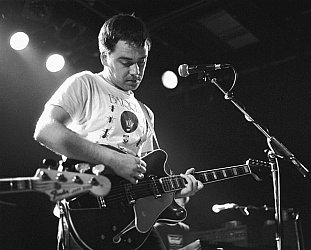

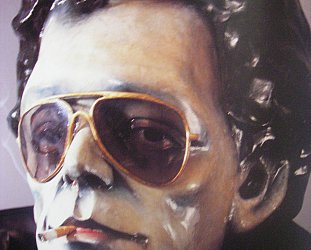

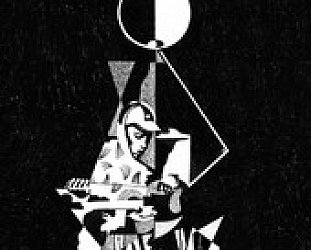
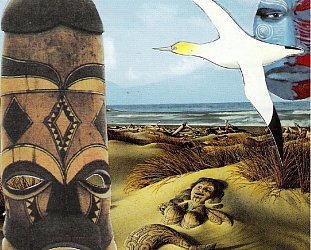
post a comment